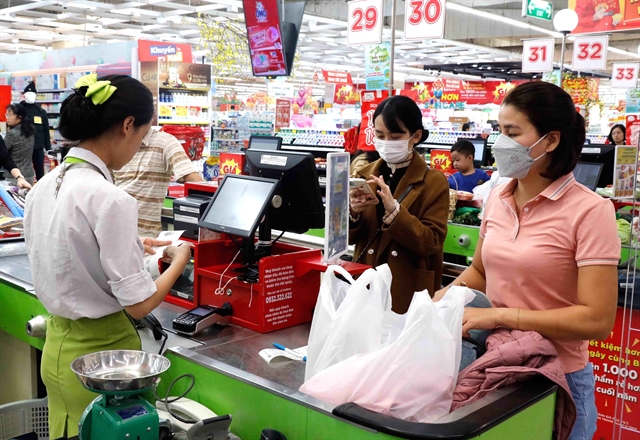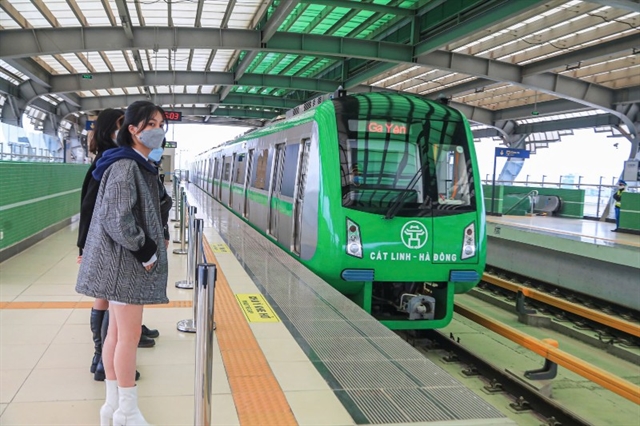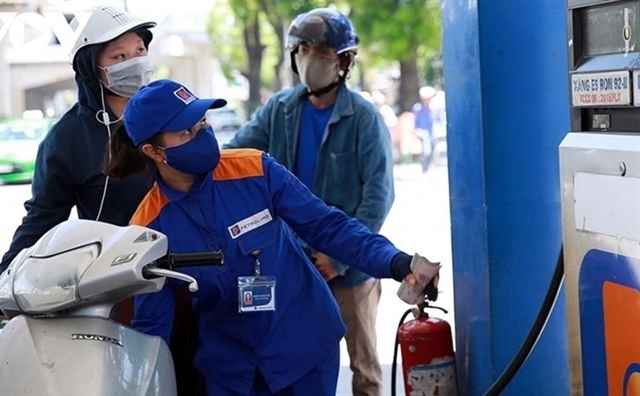 Economy
Economy


|
| Hà Nội residents shop for essential goods at Bic C Thăng Long supermarket. — VNA/VNS Photo Trần Việt |
HÀ NỘI — The Ministry of Finance has released two price management scenarios to control inflation until the end of the year.
The scenarios were discussed at a recent meeting of the Price Management Steering Committee, chaired by Deputy Prime Minister, Minister of Finance Hồ Đức Phớc, to assess price management results for the first 10 months of the year.
"The main goal is to keep the average Consumer Price Index (CPI) at or below 4 per cent by the end of the year," the Deputy PM emphasised.
According to reports from the Ministry of Finance, the average CPI for the first nine months of the year increased by 3.88 per cent compared to the same period in 2023.
This rise was partly due to the impact of Typhoon Yagi, which led to a temporary shortage of vegetables, fruits, and food in some localities and caused prices to increase.
The Government and the Prime Minister had directed efforts to increase the supply of essential goods for people in affected areas. National reserve goods were also quickly allocated.
The State Bank had effectively managed monetary policies, alongside fiscal and other macroeconomic policies, to support economic growth while controlling inflation.
As of October 23, the total system credit had grown by 9.28 per cent compared to the end of 2023 and 16.48 per cent compared to October 2023. Liquidity remains abundant, with significant room for credit and capital growth.
Based on information and forecasts of price trends of essential goods, the ministry outlined two price management scenarios for year-end.
Scenario 1 forecasts an average CPI increase of around 3.7 per cent compared to 2023, while Scenario 2 estimates an increase of about 3.92 per cent.
"Assuming that CPI rises by the same rate in the remaining months of the year, there remains room for a CPI increase of about 0.98 to 1.95 per cent, which will be safe to ensure that average inflation of the year will be within 4.0 to 4.5 per cent," Deputy PM Phớc said.
Ensuring essential goods supply
The Deputy PM also stressed that ensuring the supply of essential goods is crucial for macroeconomic stability.
He asked the Ministry of Industry and Trade, the Ministry of Agriculture and Rural Development, and other relevant ministries to closely monitor market developments and ensure enough supplies of essential goods, especially in the months before the Tết (Lunar New Year) holiday.
He urged ministries to closely track the prices of strategic items and developments in the global markets that affect the domestic markets – including the fuel market – and to stand ready with flexible and effective price management solutions.
They should also review and adjust the prices of public services and State-controlled goods to avoid major price disruptions that affect people’s livelihoods.
Price regulation tools and measures should be utilised, in compliance with legal provisions for price control and market stabilisation.
Ministries should constantly review and study legal regulations on prices and related guidelines, and propose adjustments and improvements that serve better price management. — VNS




